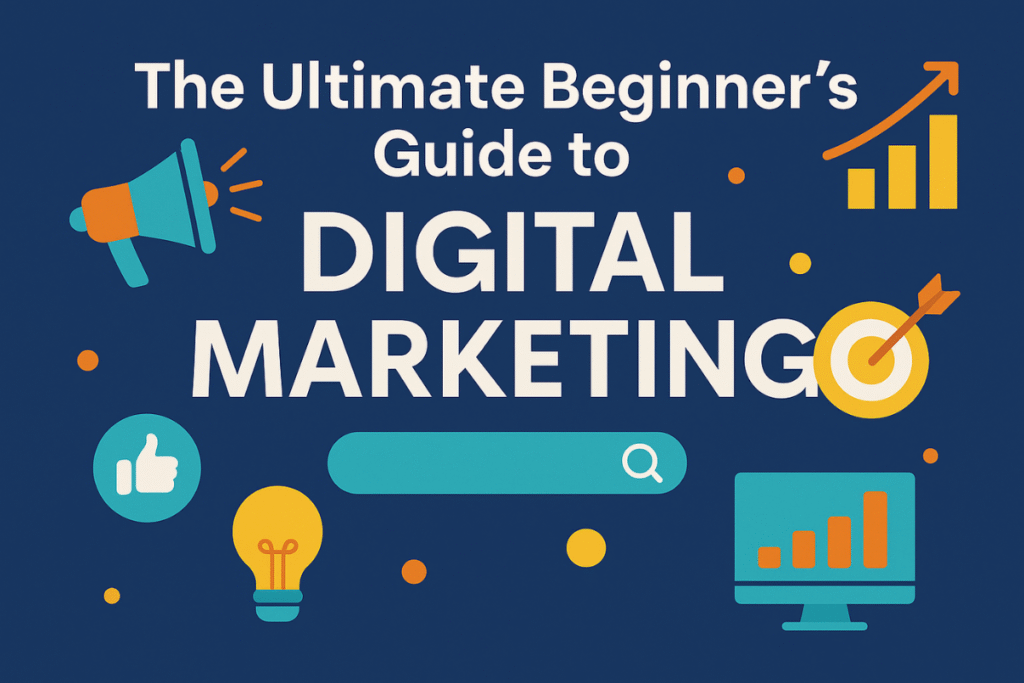Introduction
In today’s world, businesses live and breathe online. Whether you’re running a small bakery in your neighborhood or managing a global e-commerce store, your customers are online—and so should your business. That’s where digital marketing comes in.
But if you’re new to the concept, digital marketing can feel overwhelming. With so many channels like SEO, PPC, social media, and email marketing, beginners often ask: Where do I start? What works best for my business?
Don’t worry—this ultimate guide is designed to take you step by step through the basics of digital marketing. By the end, you’ll understand the key strategies, tools, and techniques to kickstart your digital marketing journey.
What is Digital Marketing?
Digital marketing refers to promoting products, services, or brands using online channels and digital technologies. Unlike traditional marketing (TV, radio, print), digital marketing allows businesses to:
-
Reach a global audience instantly
-
Target specific customer groups
-
Track results in real-time
-
Optimize campaigns for better performance
In simple words: Digital marketing helps you get the right message to the right people at the right time—online.
Why Digital Marketing is Important in 2025
-
Massive Online Audience – Over 5 billion people use the internet.
-
Cost-Effective – Digital ads often cost less than TV or print campaigns.
-
Measurable – You can track every click, impression, and sale.
-
Personalized Marketing – AI and data make it possible to customize messages for each customer.
-
Competitive Edge – Businesses without digital marketing often lose to competitors who embrace it.
Core Pillars of Digital Marketing
1. Search Engine Optimization (SEO)
SEO is the process of optimizing your website so it appears in search engines like Google. For example, when someone searches “best running shoes,” SEO helps your brand appear on page one.
Key elements of SEO:
-
Keyword research (finding what people search)
-
On-page SEO (titles, headings, content)
-
Off-page SEO (backlinks, authority building)
-
Technical SEO (site speed, mobile-friendliness)
💡 Pro tip: Consistency is key. SEO is a long-term strategy but delivers sustainable results.
2. Pay-Per-Click Advertising (PPC)
PPC is a paid marketing method where you pay only when someone clicks on your ad. Google Ads and Facebook Ads are the most popular platforms.
Benefits of PPC:
-
Instant traffic to your website
-
Highly targeted audience
-
Scalable campaigns
For example, if you run a bakery, you could target people searching “birthday cakes near me” and show them your ad.
3. Social Media Marketing (SMM)
Social media platforms like Facebook, Instagram, LinkedIn, and TikTok are powerful tools for building brand awareness and engaging with your audience.
Best practices for beginners:
-
Choose the right platform (e.g., LinkedIn for B2B, Instagram for fashion).
-
Post consistently with quality content.
-
Use a mix of posts—educational, entertaining, and promotional.
-
Run paid ads for faster growth.
4. Content Marketing
Content is the backbone of digital marketing. It’s about creating valuable, relevant, and consistent content to attract and retain an audience.
Examples of content marketing:
-
Blog posts
-
Videos
-
Infographics
-
Podcasts
-
E-books
💡 Pro tip: Focus on solving your customer’s problems, not just selling products.
5. Email Marketing
Despite being one of the oldest digital strategies, email marketing still delivers the highest ROI.
Steps to start email marketing:
-
Build a subscriber list (offer discounts, free guides, or newsletters).
-
Segment your audience (new vs. loyal customers).
-
Send personalized messages.
-
Track open rates and click-through rates.
6. Affiliate Marketing
Affiliate marketing is when other people promote your product in exchange for a commission. It’s like building a sales team without hiring employees.
Platforms like Amazon Associates and ClickBank are popular for beginners.
7. Influencer Marketing
Partnering with influencers helps you tap into their audience. For example, a fitness influencer promoting protein shakes can drive sales for a nutrition brand.
8. Mobile Marketing
With more than 70% of internet traffic coming from mobile, businesses must optimize for smartphones.
-
Mobile-friendly websites
-
SMS marketing
-
In-app ads
Step-by-Step Beginner’s Roadmap to Digital Marketing
-
Define Your Goals – Do you want more traffic, leads, or sales?
-
Identify Your Target Audience – Know who you’re trying to reach.
-
Choose the Right Channels – Don’t try to be everywhere at once. Start with 2–3 key platforms.
-
Create Valuable Content – Blogs, videos, reels, or podcasts.
-
Invest in Paid Ads – Run small ad campaigns for faster visibility.
-
Track & Measure Results – Use tools like Google Analytics, Facebook Ads Manager, and SEMrush.
-
Optimize & Scale – Double down on what works best.
Popular Digital Marketing Tools for Beginners
-
Google Analytics – Track website traffic.
-
SEMrush / Ahrefs – SEO & keyword research.
-
Canva – Design social media graphics.
-
Mailchimp – Email marketing campaigns.
-
Hootsuite / Buffer – Social media scheduling.
-
Google Ads / Facebook Ads Manager – PPC campaigns.
Common Mistakes Beginners Should Avoid
-
Trying to be on every platform at once
-
Ignoring mobile optimization
-
Focusing only on sales instead of value
-
Not tracking analytics
-
Copying competitors blindly
Future of Digital Marketing
Digital marketing is evolving rapidly with AI, voice search, AR/VR, and automation. By 2030, personalized marketing will dominate, and businesses that adopt new technologies early will thrive.
FAQs
Q1. How long does it take to see results with digital marketing?
SEO takes 3–6 months for noticeable results, while PPC and social media ads can deliver traffic instantly.
Q2. Do I need a big budget to start digital marketing?
No. Many digital marketing strategies like SEO, blogging, and social media are low-cost. Paid ads can start from as little as ₹500–₹1000 per day.
Q3. Which digital marketing channel is best for beginners?
Start with SEO and social media—they’re cost-effective and build long-term brand visibility.
Q4. Can I learn digital marketing on my own?
Yes! There are free resources, blogs, YouTube tutorials, and online courses to get started.
Q5. Is digital marketing a good career option?
Absolutely. With businesses shifting online, demand for digital marketers is growing, with average salaries ranging from ₹4–12 LPA in India.
Conclusion
Digital marketing is not just a trend—it’s the future of business. For beginners, the key is to start small, stay consistent, and keep learning. Focus on your audience, experiment with different channels, and use data to improve your strategies

